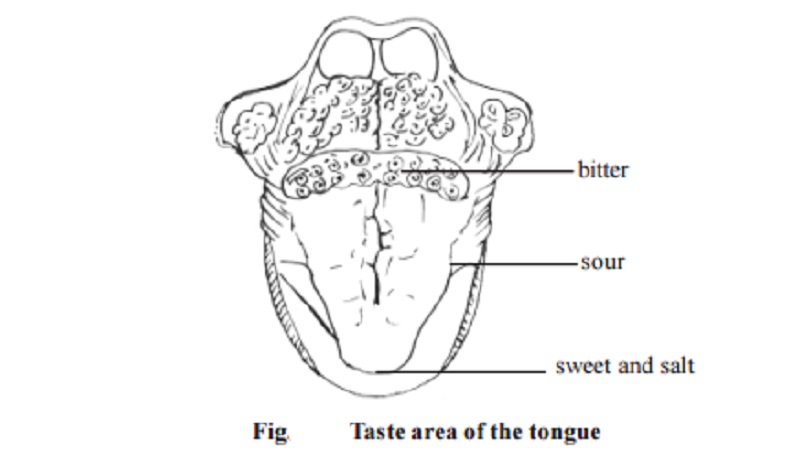Chapter: 11th 12th standard bio zoology Human Body higher secondary school
Human Tongue and Mechanism of Stimulation

Human Tongue
In man the taste buds
are found only in the mouth and are abundant in the tongue. They are
distributed over the dorsal and under surface of of the tongue, on the
laryngeal surface of the epiglottis, pharynx and on the cheek.
Each taste bud occupies the entire thickness
of the epithelium. There is an opening on its free surface known as the pore
canal. Taste buds are numerous at birth and their number decreases with age.
Taste sensation and
disribution of taste cells :-
There are four primary or fundamental tastes.
They are sweet, sour, salt and bitter. Alkaline and metallic taste are also
sometimes included.
Taste buds mediating the four primary taste
are localized in certain regions on the tongue. The taste bud sensitive to bitter taste are at the back of the
tongue. Those for sour tastes are on the lateral surface. Those mediating salt at the anterior part of the dorsum
near the tip. The taste bud sensitive to
sweet are near the tip. The taste bud in the palate respond to sour and
bitter taste but have some sensitivity to sweet and salt. The pharynx and
epiglottis are not sensitive to all four tastes. It is found that both sweet
and salt are insensitive to taste in these regions.
Mechanism of Stimulation
Taste receptors are stimulated by substances
in solution. The dissolved substances act on the microvilli of the taste
receptors which project at the gustatory pore and sets up a generator potential
to the receptor. This inturn activates the afferent nerve ending at the base of
the receptor, producing a propagated action potential in the nerve. The
mechanism of production of generator potential varies in different receptors of
taste.
Related Topics